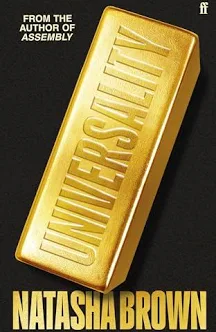The Booker longlist was announced on Tuesday. This is a moment I always look forward to as I love the discussions about books, prizes and literature in general that invariably arise during Booker season. As to the actual list, after the initial rush of discovering who is actually on it, I often find myself feeling disappointed. I don’t think there’s ever been a year where there hasn’t been at least one book that snags my interest, that feels like a choice I myself would have made – some years, that book might even go on to win! And maybe that’s the point of the Booker, that it showcases a whole spectrum of literary styles, attitudes and concerns, that the longlist really does provide ‘something for everyone’. Fair enough – that’s not a bad mission to have. But as someone notorious for enjoying a ‘statement’ prize list, a shortlist that coheres around a particular vision, the Booker longlist has often felt a bit flabby, a bit medium, dominated by books that are ‘about’ something but that don’t do anything exciting at the level of text.
This year’s longlist, I was delighted to find, feels rather different.
Not only did it include books by two of my favourite writers – Katie Kitamura and Jonathan Buckley – but it also included a generous handful of other books I have been genuinely interested in reading. Books and writers that push the boundaries a little, that do stuff with form and that take a few risks. I like this longlist. And so I’ve decided to try and read as much of it as I can before the shortlist announcement, and post my findings here. First up is…
UNIVERSALITY by Natasha Brown
I still haven’t got round to reading Assembly, so this seemed like the perfect opportunity to discover Brown’s work. My initial impressions weren’t great. But this book won me over. I love it when that happens!
Universality opens with what purports to be a piece of longform journalism investigating an act of violence at a farm in Yorkshire. An experiment in ‘intentional living’ seems to have gone badly awry, culminating in a clash between two would-be eco-warriors that leaves one of them in hospital with a severe concussion. The weapon? A gold bar, net worth half a million and current whereabouts unknown. Is what happened at Alderton Farm a microcosm of society’s wider conflicts, or just some stupid fight?
Reading this, I was finding it difficult to understand why someone would spend time satirising the kind and class of people who write opinion columns for The Spectator. I was also becoming wearied by the multiple iterations of the words ‘late capitalism’ – we have opinion columns in the Guardian for that. But the deeper I dived into this book, the more I found myself smiling, raising my eyebrows in delight and admiration. Universality is relentlessly satirical – not always my bag – and it is, relentlessly, about a certain milieu, and relentless in a way that risks tipping over into caricature. The fact that it does not – quite – is a measure of Brown’s confidence as a writer, her passion for her subject and her adept handling of her material. She is showing us a particular stratum, the place where a lot of soft power lies and where, deliberately or arbitrarily, decisions are taken about ‘what we think’ and how ‘opinion’ and thus society will be steered.
The ending, for me, was genius. And that moment between Richard and Claire is proof that the book has a beating heart beneath its corporate sheen.
It is a smart book, and it is a funny book. But it’s more than that. There’s muscular writing, some genuinely wonderful sentences, entire flocks of acute observations. It is a disturbingly accurate portrait of Britain today – or at least some parts of it. Universality is a slim novel – less than 200 pages – but it does plenty of heavy lifting. Hats off.
Could it be a contender?
It’s pertinent. It’s relevant. You know, I really think it could.
